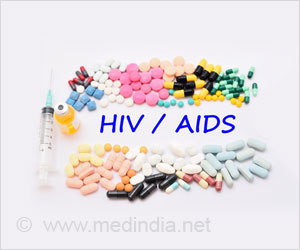The stigmatisation of HIV/AIDS is a major hindrance in controlling the fast-spreading disease in India, says a top UN official.
The stigmatisation of HIV/AIDS is a major hindrance in controlling the fast-spreading disease in India, says a top UN official.
"Stigma and discrimination are indeed problem areas in tackling HIV/AIDS in India," said Nafis Sadik, special envoy of the UN secretary general for HIV/AIDS in Asia and the Pacific."There is acceptance of the problem at the highest level, although lots needs to be done to make it (the disease) acceptable in the society which is still in a denial mode," Sadik told journalists.
Sadik is in Assam's main city of Guwahati on a two-day visit to review the HIV/AIDS scenario in India's northeast.
"We need to step up the level of awareness about HIV/AIDS and make sure we are able to deal with it more like a public health issue," she said.
India accounts for about 5.2 million HIV-positive people, second only to South Africa. India's northeast has been declared as one of the country's high-risk zones with close to 100,000 people infected with HIV.
"The epidemic is spreading rapidly to the general population by way of transmission from infected parents to the infants and from spouses to young married women," Sadik said.
Advertisement
"Nearly 10 percent of the people in Philippines are migrant workers of whom nearly 60 percent are women working as domestic help and doing odd jobs in the Gulf and other countries. Nearly 23 percent of the migrants who have returned home were found to be HIV positive and this is a real big problem," she said.
The UN official cautioned that human trafficking was a much bigger problem than drug trade. "Human trafficking is a huge issue as many of them are used as sex workers," Sadik said.
Gullible young girls from India's northeast are being forced into prostitution in the metropolises after being lured by organised syndicates promising them glamorous careers and lucrative jobs, a rights group has said.
"The situation is extremely serious with smart operators flooding the northeast hunting for good looking young girls for modelling assignments or jobs in call centres with good salaries," said Hasina Kharbih, chairperson of Impulse NGO Network, a rights group working in rescuing women trafficked from the northeast.
"But in reality, many of these women were pushed into the notorious world of prostitution." The group has rescued about 50 girls from various parts of India in the past two years.
Source-IANS
SRM





